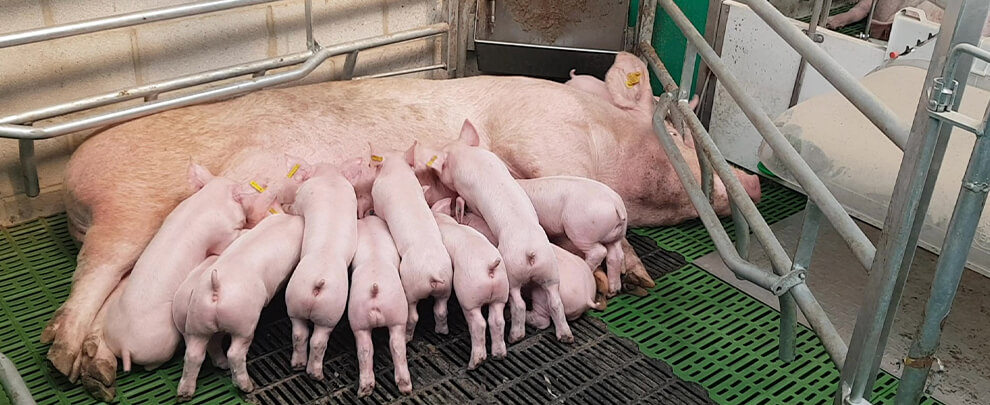Blog
Blog

The role of hygiene in the suckling piglet
01st June 2023 - News
We do not discover anything by saying that digestive diseases are one of the most important concerns from the birth of the piglet to its fattening. Its importance is given, mainly, by the economic losses that may represent for the producer. For this reason, hygiene at the time of delivery and the days of lactation will be an aspect to take into account to avoid the appearance of this type of disease. There are several points that must be checked regularly:
- Cleaning of the calving area.
- Daily scratching of the droppings of the sows.
- Cleaning of corrals and corridors.
- Control of drinking water quality.
These measures will improve the health status of both the sow and the piglet, which in their first days of life we must control in a special way.
At birth, the gastrointestinal tract of the piglet is sterile, but through the animal's contact with the mother and its closest environment, its ease of being contaminated by microorganisms is very high. Already during farrowing, the piglet can acquire bacteria from the vagina and later, through contact with the sow's skin and udder.
For this reason, the management and hygiene protocol in the lactation period indicates the need to clean the farrowing pen daily in order to avoid the proliferation of polluting agents for the piglet. One of the most important aspects is the evacuation of maternal faeces so that the piglets do not rummage through them (a very common practice in piglet behaviour). In order to carry out this cleaning task with ease, Rotecna has the Trap-Slat, a slat that allows the rear area of the sow to be cleaned easily and comfortably, evacuating the feces through its hole.
In addition to maternal droppings, we must not forget other factors that may favor the appearance of diarrhea during lactation:
- Accommodation conditions during delivery and in the following days.
- The room environment (temperature and ventilation handling).
- Feeding.
- The good state of health of the mothers.
- Flock management (adequate colostrum intake, adoptions, etc.)
We must not forget that the maternity and post-weaning phases are closely linked, and that the digestive problems that appear in the first of these phases clearly predispose to weaning diarrhea.






